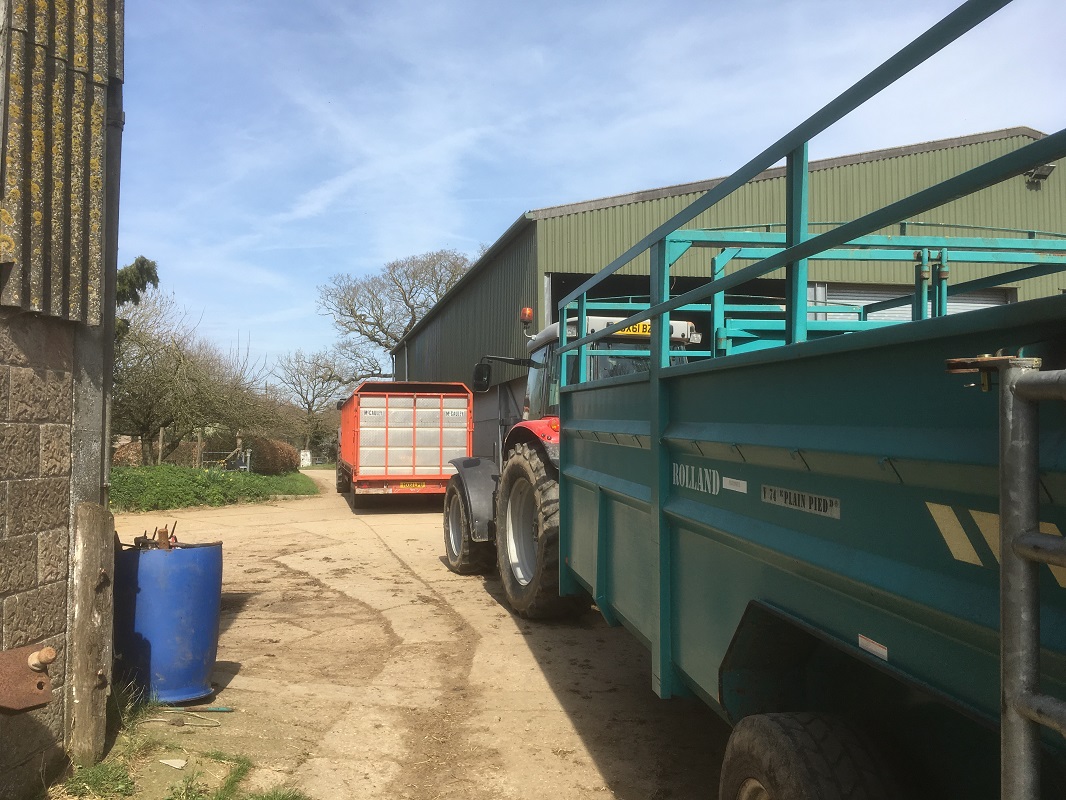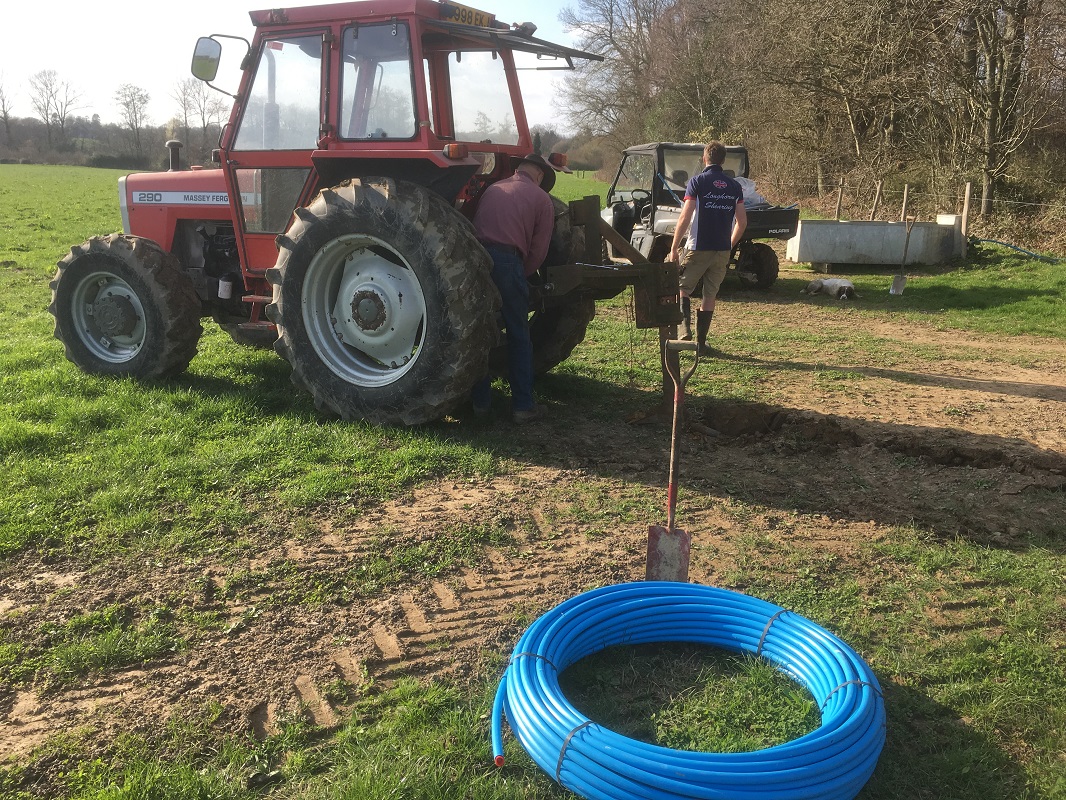Recent articles and social media posts claiming dairy farmers to be murderers and rapists are saddening for me as they have no wish to have reasonable debates, instead leaning towards the sensational to aid their cause says Dan Burdett
As I sit here on a gloriously sunny April day, the light at the end of the winter tunnel is blinding and the promise of spring is very much upon us. With the calves having departed to pastures new this week and the cows now out at night, we’re just left with my heifers still to release from their winter lodgings, something that I hope to do before the week is out. However, the 1st April had a sting in the tail when I came in to milk the following morning to find that the silage my heifers have been eating all winter had collapsed, trapping and killing one of them in the process. There is never a more gut wrenching feeling as a farmer then to see the needless loss of life and the soul searching went on that day for some time. To those who state that we farmers are uncaring towards our animals could’ve looked deep into my soul that morning and found only pain and regret for this tragic accident.

This aside, for me, it’s one of the best times of the year as a dairy farmer, to finally see my animals out grazing lush pasture for the next six months. Although this winter has been outstanding once again, I am personally feeling like I’m down to 5% battery and in need of a serious recharge session. Having vowed to have a better life balance, I dismally failed and can count the number of cow free days since August on one hand. In order to stop this in the coming years I’ve taken the decision to employ a full-time assistant for Luke, who will take on most of my duties. Having had Eloise, a fantastic middle-year student from Plumpton College, this year I decided to go back there to look and have taken on Alfie, who will start in June. This is a big step for me and one that will hopefully allow both Luke and I to take the next step in our careers.

The fantastic weather has allowed us to complete the huge fencing and water projects that I set out to do during the winter. This is a big step for us as we can now securely graze the whole farm, with confidence that the cows will still be in the same place we left them! This will benefit the soils further away from the dairy as they are hungry for lots of cow muck to keep them fertile!

As I pondered the subject of this blog a few days ago my moment of inspiration came when Dad asked me to think about where I see myself and the farm in twenty years time, as I turn 60! Since starting Burdett Farming nearly four years ago my focus has been primarily on the dairy performance, with goals set and smashed on a regular basis. This year the cows have pulled out all the stops in getting back in calf, so much so that we now have over 300 to calve later this year. Expansion is on the cards but I need to make sure that this isn’t just a vanity project, something to boast about with my farming friends, but something that actually benefits both us and the farm.
So where do I see the farm in 2037? I feel that in order to continue to thrive we’ll need a bigger spread of enterprises on the farm, mainly focusing on livestock. I’m sure that dairy will be our key profit driver, but that the ecology of the farm will benefit from different species grazing, and a more varied plant life to feed the life under our feet. I also see more community involvement here as the interest in food production grows. I love the idea of community supported agriculture (CSA), which tends towards smaller scale horticulture, but I’d love to know how we could make it work on a larger scale. The more open we are as farmers the easier it will be to silence the vocal minority who claim livestock farming to be evil. Recent articles and social media posts claiming dairy farmers to be murderers and rapists are saddening for me as they have no wish to have reasonable debates, instead leaning towards the sensational to aid their cause.
“Recent articles and social media posts claiming dairy farmers to be murderers and rapists are saddening for me as they have no wish to have reasonable debates, instead leaning towards the sensational to aid their cause.”
The continuing commoditisation of food shows few signs that it will slow down, particularly with most Brexiteers clamouring for a trade policy that allows food to be cheap. There seems to be a drive to keep food prices low, but at what cost to society? Who is really benefitting from food that is both cheap in price but also severely lacking in nutritional quality? Where it has been over-processed it is likely to be causing long-term health effects, the financial results of which are crippling the NHS. But, the fightback is on, with nutritional information taken as gospel over the last 50 years now being turned on it’s head. Dairy is one of the main beneficiaries of this about turn as it’s now been shown that animal fat is good, vegetable fat is bad. For years butter has become a no-no for a healthy ‘low-fat’ diet, with the highly processed bland margarine promoted as a life-giving source. Thankfully this has now been reversed and butter sales have exploded as a result.
Without a strong farming industry in the UK we will be reliant on imports of food from across the globe. Most will be of a very high quality but some will be produced to standards lower than ours in order to drive down costs, which is a huge concern particularly for livestock welfare. We will also be importing millions of tons of water from some of the most drought prone areas of the globe, where over-exploited aquifers are causing untold damage to the local environment.
As I sit back on my rocking chair on the veranda in 20 years time, I would hope to look out on a farm that has helped to boost the health and prosperity of those around us by challenging the farming norms and helping the next generation to reach even higher.



